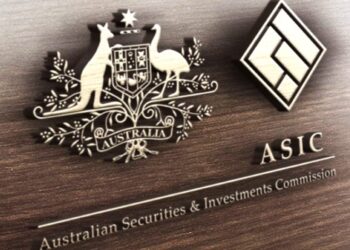Shelley Banton, head of technical for ASF Audits, says this situation is a challenge given the fact that the point of the blockchain is to have anonymity.
“We need to firstly see whether the trustee has mixed fund assets with personal assets and if there have been some complications in terms of muddying those waters,” she said at the SMSF Association Technical Conference.
“Are we seeing trustees chase these easy returns by investing in crypto without actually understanding how it works, or understanding the difference between how they operate from a personal point of view versus how they operate from the fund’s point of view?”
Regulation 4.09, Banton said, deals with the separation of assets regardless of whether it’s a corporate or an individual trustee.
“The ATO has recently released some guidance on separation of assets, which provides information about the fact that it doesn’t matter whether it’s a corporate or an individual trustee – that reg 4.09A applies to both types of trustees equally.”
She continued that the issue of separation of assets can be complicated in crypto investment if the trustee has an exchange account and wallet in their personal name.
“Additionally, what about using the fund bank account? Are we seeing related party transactions sneak in here?”
“We don’t know what’s happening, so we need to make sure that everything’s at arm’s length, because they could be trading off-chain, in which case it makes it harder for us to trace who the other party in that transaction is.”
Furthermore, there are questions around whether in-specie contributions as crypto is not classified as money, and trustees can’t in-specie contribute cryptocurrency, or pay it out as a pension payment.
“It can be taken out as a lump sum, but it can’t be paid out as a pension payment,” Banton said.
“If crypto is transferred into a super fund, it will be a breach of section 66 of the SIS Act, which is a compliance breach for trustees who don’t understand how it works and means it’s up to auditors to make sure that they are training and educating clients, and not seeing these sorts of compliance breaches.”
There may be situations where the fund goes off-chain to provide financial assistance or to provide crypto to a related party, such as a member or a relative, which may also result in compliance breaches.
“But the granddaddy of them all is market valuation. Since the ATO updated its website, it has removed the reference that previously stated you could use the 30 June closing figures in Australian dollars that have been posted on a crypto exchange,” Banton said.
“That has been eliminated. It now states that the trustee has to make sure that they have proper market valuation records for their auditor. The trustee can use prices from anywhere, but they need to justify them with evidence.”
Banton continued that an auditor should already have a set of prices for frequently traded cryptos for the end of the financial year, but if they don’t, they can use websites such as coinmarketcap.com, coingecko, or even Yahoo Finance for prices.
“If they’re in US dollars, the auditor needs to make sure they are converting them back to Australian dollars. The problem is that there’s no centralised exchange in Australia for crypto. There are many different exchanges, all of which have their own prices that can differ by about 1 to 2 per cent.”
“However, where there is a lot of price volatility in the market, you may see a difference as high as 4 to 5 per cent, and you need to check and make sure that if there is over that level of materiality, you look through your audits, and query that as you don’t want a material misstatement in the financial reports.”



And the Government require SMSF’s who option-trade (a regulate market – but more speculative) to have a specific SMSF strategy. Why then can such a volatile and enigmatic investment as crypto be without any special duties or obligations on the SMSF trustees.
Reading this article the poor auditors are taking majority of the risk and educational duties and that is grossly unfair!
Having seen coins disappear from statements (stolen) my faith in block chain similarly has disappeared. It is not the nirvana of security for financial transactions it was touted to be, merely an easier way tech savvy thieves to transact from the comfort of their armchairs!
SIS prohibits loans to members & relatives, and restricts loans to related parties.
Your SMSF cannot purchase residential property from yourself, among other restricted investing.
So the superannuation laws are replete with prohibitions and restrictions on “risky & inappropriate” investing. So why hasn’t the Government got the gumption to ban cryptocurrency in SMSFs?
They would be doing the poor deluded souls who have jumped on the crypto bandwagon a mighty favor, as most have absolutely no idea about the risks of these “phantom” investments. The same poor souls then expect the SMSF auditor to just sign off every year that their crypto is hunky-dory! Once it all goes to hell in a handbasket, some smarty lawyer will tell those same poor souls to sue the auditor!
Forget it! No one can certify that this stuff really exists (unless another sucker buys it) and auditors should not be placed in the position of certifying that it exists and is correctly valued.
By all means, invest in crypto personally, or go to the casino (its quicker & tax free). We don’t really care.
There are hackers all over the World working night and day to finally crack the crypto net. How do you crypto investors even sleep at night?
SMSFs are for retirement, not a punt, so politicians take note, ban it before it does more serious damage to Australia’s retirement incomes policy.
I would rather buy a share in a racehorse. At least I can watch my money go down the drain!